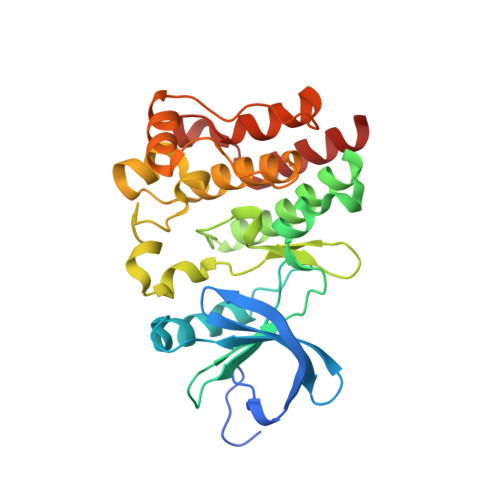Discovery of the Bruton's Tyrosine Kinase Inhibitor Clinical Candidate TAK-020 ( S )-5-(1-((1-Acryloylpyrrolidin-3-yl)oxy)isoquinolin-3-yl)-2,4-dihydro-3 H -1,2,4-triazol-3-one, by Fragment-Based Drug Design.
Sabat, M., Dougan, D.R., Knight, B., Lawson, J.D., Scorah, N., Smith, C.R., Taylor, E.R., Vu, P., Wyrick, C., Wang, H., Balakrishna, D., Hixon, M., Madakamutil, L., McConn, D.(2021) J Med Chem 64: 12893-12902
- PubMed: 34448571
- DOI: https://doi.org/10.1021/acs.jmedchem.1c01026
- Primary Citation of Related Structures:
7N5O, 7N5R, 7N5X, 7N5Y - PubMed Abstract:
This publication details the successful use of FBDD (fragment-based drug discovery) principles in the invention of a novel covalent Bruton's tyrosine kinase inhibitor, which ultimately became the Takeda Pharmaceuticals clinical candidate TAK-020. Described herein are the discovery of the fragment 5-phenyl-2,4-dihydro-3 H -1,2,4-triazol-3-one, the subsequent optimization of this hit molecule to the candidate, and synthesis and performance in pharmacodynamic and efficacy models along with direct biophysical comparison of TAK-020 with other clinical-level assets and the marketed drug Ibrutinib.
Organizational Affiliation:
Takeda California, 9625 Towne Centre Dr., San Diego, California 92121, United States.


















